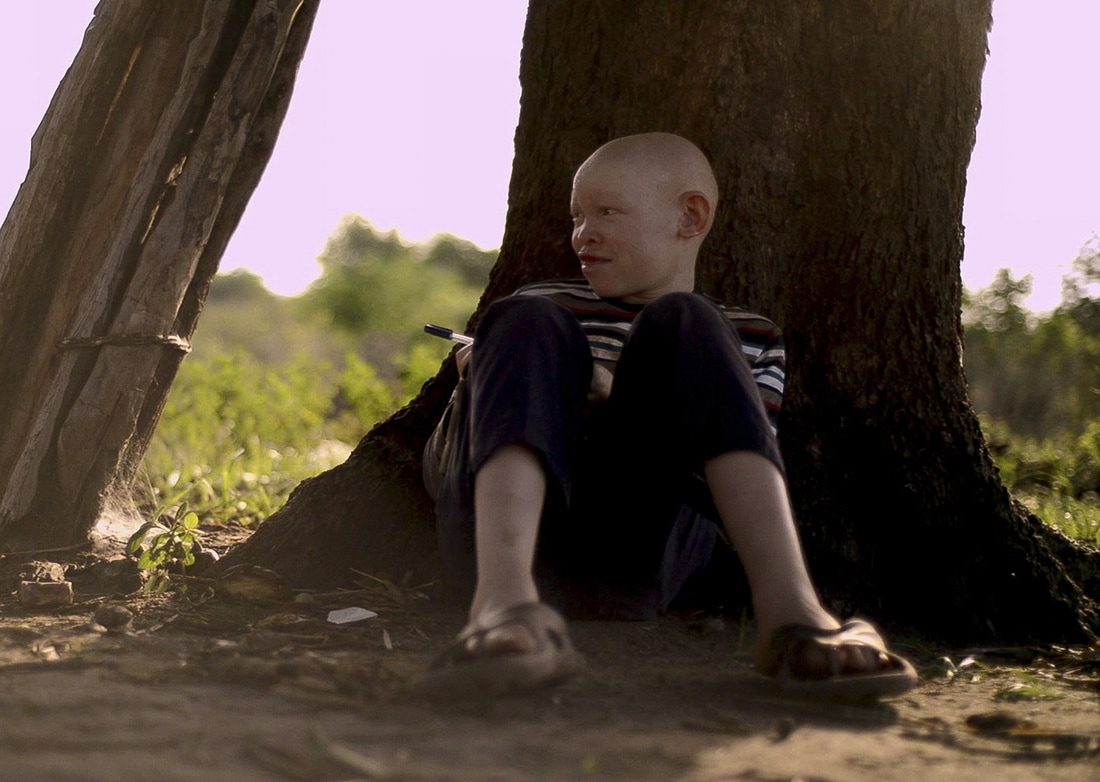curator's noteFor the final MUBIVIEWS of the summer, our writers to consider Vic Sarin’s THE BOY FROM GEITA (2014), a harrowing documentary that examines albinism within Tanzanian culture and the people that are persecuted because of it. OTHERINGGEORGE LEEOthering is a process in which a majority of people are treated as ‘us’ and the remaining minority are seen as ‘them’. The ‘them’ are then referred to in less than human terms and treated as completely alien from the seemingly normal society. They are no longer seen as people but ultimately seen and therefore treated as less than. Othering is often applied to a member of society who does not adhere to societal norms. This is often the case in cinema which has a long a sordid history of enhancing these stereotypes, from early cinema’s treatment of women to recent African American representation. The film THE BOY FROM GEITA (Vic Sarin 2014) attempts to not only highlight these issues but show them in an honest and subsequently horrifying light. The film follows a young Tanzanian boy, Adam and his persecution for being an Albino. The film focuses heavily on this aspect of othering. The characters in the film tell their stories of how in Tanzania albinos are especially vulnerable to persecution. These scenes are heartbreaking as the children experienced truly atrocious events but even more so is their complete confusion as to why they are being discriminated against. Adam is violently attacked, all because he is deemed as different. In this particular case, his attackers violent remove his limbs as they are under the impression that body parts of Albino people contain magical powers. Rather than delving into this belief, the film chooses to focus on the futility of othering, that no one is really that different and much less so should be in any form persecuted for it. It does a fantastic job of showing the albino characters' humanity as they themselves try to come to grips with why they are being persecuted for something they have no control over. Every day this week a different writer will provide their perspective on our MUBIVIEWS film and each post will be open to comments from our readers. Watch THE BOY FROM GEITA on mubi.com until 13 July 2017 and join the discussion!
0 Comments
Your comment will be posted after it is approved.
Leave a Reply. |
MUBIVIEWSOne MUBI film, five perspectives, endless possibilities. Archives
July 2017
Categories
All
|



 RSS Feed
RSS Feed
